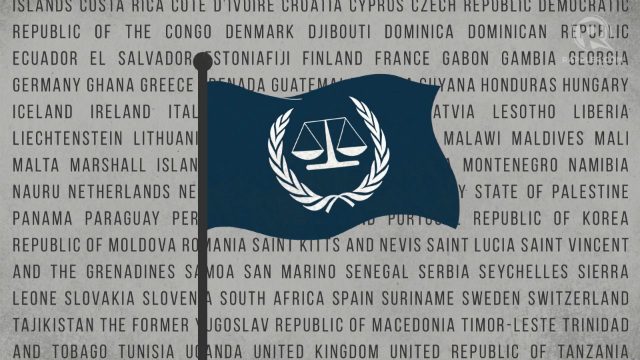SUMMARY
This is AI generated summarization, which may have errors. For context, always refer to the full article.

MANILA, Philippines – Can the Philippines immediately cease being a member of the International Criminal Court?
While President Rodrigo Duterte and his allies may want that to happen, the Rome Statute explicitly says there is a one-year period before a withdrawal takes effect.
The ICC’s founding document, the Rome Statute, defines its jurisdiction and identifies other rules on how to prosecute those responsible for crimes such as genocide, crimes against humanity, war crimes, and crimes of aggression. (READ: Things to know about Duterte’s pet peeve ICC)
It took effect in 2002 and, as of February 2018, the court has jurisdiction over at least 123 countries.
Article 127 of the Rome Statute, ratified and signed by the Philippines, lays out the terms which member-states need to follow if they want to withdraw:
“1. A State Party may, by written notification addressed to the Secretary-General of the United Nations, withdraw from this Statute. The withdrawal shall take effect one year after the date of receipt of the notification, unless the notification specifies a later date.
2. A State shall not be discharged, by reason of its withdrawal, from the obligations arising from this Statute while it was a Party to the Statute, including any financial obligations which may have accrued. Its withdrawal shall not affect any cooperation with the Court in connection with criminal investigations and proceedings in relation to which the withdrawing State had a duty to cooperate and which were commenced prior to the date on which the withdrawal became effective, nor shall it prejudice in any way the continued consideration of any matter which was already under consideration by the Court prior to the date on which the withdrawal became effective.”
Publicly declaring in speeches that a country will withdraw will not automatically jumpstart the process.
The first step begins when a government sends a letter to the Secretary-General of the United Nations. In this case, the Duterte administration needs to address the letter of intent to UN Secretary-General Antonio Guterres.
Once the office of Guterres receives the letter, the Philippine government has to wait for a year before the withdrawal takes effect.
It is only when the one-year period lapses that Duterte can say that the Philippines is no longer a member-state of the International Criminal Court.
But Article 127 of the Rome Statute also explicitly says that criminal investigations and proceedings that have been started before the withdrawal came into effect will still continue.
READ Rappler’s explainers:
Yes, Int’l Criminal Court can prosecute Duterte for killing spree
Police, military officials liable for Duterte’s illegal kill orders
What challenges will complaint vs Duterte face before ICC?
ICC’s track record and what it means for Duterte and the PH
Duterte ‘deliberately’ misrepresenting facts
Duterte’s recent move comes after the ICC’s Office of the Prosecutor announced it is starting a preliminary examination “following a careful, independent, and impartial review of communications and reports documenting alleged crimes” committed in the Philippines since 2016.
In a statement released on Wednesday, March 14, Duterte insisted that this was a “brazen display of ignorance of the law” because the court has no jurisdiction over the Philippines or him.
But the preliminary examination is only the first step in a long process that could take years – if the ICC even proceeds with an investigation. (WATCH: The International Criminal Court process)
Harvard Law professor and former ICC investigation and prosecution coordinator Alex Whiting said that Duterte is “deliberately and knowingly misrepresenting the facts.”
“The prosecutor at the ICC has only commenced a preliminary examination to determine if a full investigation is warranted, so there has been no disrespect of any Philippine national processes, and Duterte’s assertions in this regard are simply false,” he told Rappler.
“Ultimately, of course, accountability requires political will, and so those seeking accountability both within and outside the Philippines must consider how to encourage and foster such will,” he added. – Rappler.com
Add a comment
How does this make you feel?
There are no comments yet. Add your comment to start the conversation.